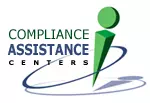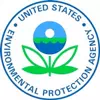Guide to JCAHO Leadership Standard 1.30
© 2005
Joint Commission on Accreditation of Healthcare Organizations.
Any use of any or all of the Joint Commission standards
and elements of performance beyond this particular tool
is strictly forbidden without the written permission
of the Joint Commission. Citations from JCAHO standards are ©2005 Joint Commission on Accreditation of Healthcare Organizations. Any use of any or all of the Joint Commission standards and elements of performance beyond this particular tool is strictly forbidden without the written permission of the Joint Commission. These pages do not reflect any changes in the standards made after 2005. |
Please
note: this page is under development. Contact
(734) 995-7989,
if you have questions or suggestions.
Introduction Table of Contents Checklist for 1.30.1 and 1.30.2
|
Leadership standard 1.30: The organization complies with applicable law and regulation. Element of Performance 1: Services provided in accordance with rules The organization provides all services in accordance with applicable licensure requirements, law, rules, and regulations. |
This page provides
a set of criteria for evaluating how well
a facility complies with all
legal and regulatory requirements.
| (See also Element of Performance 2, below) |
|
| Regulatory compliance | ||||||||||||||||
| |
The organization
has plans and policies for complying with the rules of
the US Department of Transportations (DOT) especially
as they relate to the following topics:
|
| |
The organization
has plans and policies for complying with rules of the
US Environmental Protection Agency (EPA) especially as
they relate to:
(State operating permit programs, 40 CFR 70; Protection of Atmospheric Ozone, 40 CFR 82)
(EC 1.10, 1.20, 2.10, 3.10, 9.10-.30, HR 2.10-.20, 40 CFR 152, 171,260, 262, 265, 268, 273, 279, 280, 403). |
||||||||||||
| |
The organization has plans and policies for complying with the rules of the Nuclear Regulatory Commission (NRC). RULE CITE | ||||||||||||
| |
The organization
has plans and policies for complying with the rules of
the Occupational Safety and Health Administration (OSHA)
especially as they relate to:
(29 CFR 1900, 1910, EC 1.10, 1.20, 2.10, 3.10, 9.10-.30, HR 2.10-.20) |
||||||||||||
| |
The organization
has plans and policies for complying with state and local
law with respect to:
|
||||||||||||
| |
All policies related to environmental compliance are signed by the organization's leadership. | ||||||||||||
| Pollution prevention | |||||||||||||
| |
Leadership supports the national waste reduction hierarchy established under the Pollution Prevention Act. | ||||||||||||
| |
Leadership supports environmental stewardship as important to community health. | ||||||||||||
| |
An environmental policy supporting prevention of pollution and conservation of resources has been developed. | ||||||||||||
| |
The organization's environmental improvement policy has been signed and is supported by leadership. | ||||||||||||
| |
Leaders consider themselves stewards of resources and sustainability as a means of protecting the health of communities served. | ||||||||||||
| |
Leadership can articulately discuss pollution prevention activities occurring in the organization. | ||||||||||||
| |
TRACER Staff can describe their role in pollution prevention as environmental improvement, e.g. using less of a product, input or managing a waste reduction process, double-sided copying, alternative transportation to work (bus, bike, walk carpool), reuse of items, etc. | ||||||||||||
| |
|
||||||||||||
| Environmental management systems | |||||||||||||
| |
Executive Order 13148 requires all Federal facilities and agencies to have an Environmental Management System in place by 12/31/05. | ||||||||||||
| |
An Environmental Management System has been developed and implemented. Implementation is evidenced with documentation indicating reduced waste, cost savings, resources saved, reduced occupational injuries, etc. | ||||||||||||
| |
The organization is ISO 14000 certified and maintaining the certification. | ||||||||||||
| |
|
|
Leadership standard 1.30: The organization complies with applicable law and regulation. Element of Performance 2: Organization acts upon reports, recommendations as appropriate The organization acts upon any reports and/or recommendations from authorized agencies as appropriate. |
| |
The organization has inspection reports and audits from regulatory authorities including OSHA, EPA, DOT, NRC, state and local authorities indicating compliance with applicable environmental laws and regulations. |
| |
Leaders have reviewed and responded to inspection reports. |
| |
Copies of organization's responses to inspections and audits are available. |
| |
The number of citations on inspection reports has been reduced. |
| |
The facility has minimized the number of regulated items and areas, potentially reducing the number of inspections conducted by regulatory authorities. |



